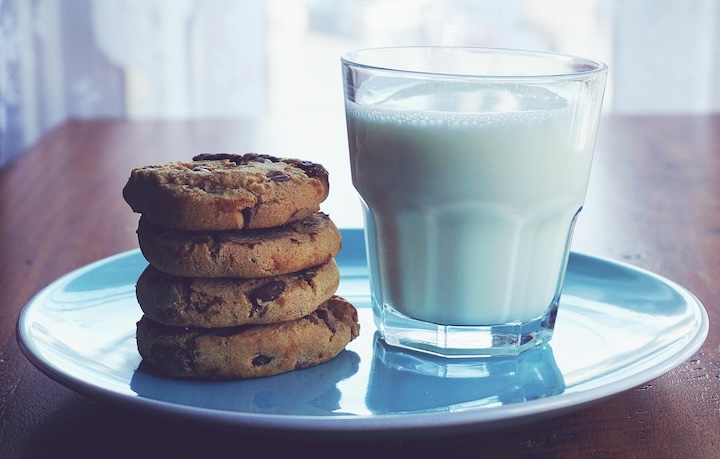
I remember my breakfast as a kid. It was as sugary as it gets, with cereal and milk or a good marmalade toast and a chocolate shake to start my day.
I remember the highs and lows of my energy levels throughout the day or how I would look in the mirror and wonder why I grew as a chubby kid instead of thinner and stronger like some friends.
I had no idea what a good diet looked like, and without any good examples to follow in my environment, I was pretty deep into an addiction that has been hard to defeat in my adulthood.
The problem with sugar, apart from being very addictive, is that I used it as a gateway.
Later in my adult life, when I felt stressed or overwhelmed, I drank a glass of milk and cookies and watched a movie at night. Somehow, the immediate pleasure of the taste was enough to make me forget about my problems. I felt better, even if it was just for a few minutes.
When I didn’t have anything sugary at home to eat, I had to go to the supermarket, sometimes at embarrassingly late hours, to buy some cookies or a sponge cake.
At some point in my early twenties, overweight and tired, I accepted I had a problem. I also learned that sugar is very addictive. So, I made a decision—no more added sugar in my diet.
I cannot count how many times I’ve succumbed again to the addiction. These episodes, and how long they lasted, were thankfully less frequent and shorter over time, but it wasn’t a straight line from point A to point B.
Thankfully, I’m in a much better position after countless drawbacks. I still have some added sugar here and there, like a dessert on a special occasion, but it’s far from my previous daily consumption levels.
I’d say there are perhaps three aspects that helped me overcome my addiction.
1. Change of environment
In 1971, the public knew that many soldiers in the Vietnam War were addicted to heroin. Authorities run tests to see who was addicted before returning home and then after the first, second, and third years. The results were surprisingly positive.
Of all the men addicted in Vietnam, only 12% relapsed to addiction in the three years after returning home—almost 90% of the recovery rate.
The main conclusion from the study is that a change of environment as radical as Vietnam’s during a war period compared to the US was critical for their recovery.
I used this principle by taking some long vacations in the summer to stop eating sugar. I wasn’t at home and had a different schedule, but I’m sure it made things easier.
When I came back, I moved to the second step.
2. Removing the possibility
Not having anything sugary around the house made it easier not to take it. Of course, I could still buy it, but it was easier not to do it.
When I returned from my trip, my fridge was empty, so I resisted the temptation to buy those products. This was a one-time challenge compared to the ongoing fight I would have endured if I had something at home.
3. Influential habits
Like water overflowing a vase and filling other vases around it, some habits have a positive rippling effect on your life.
For example, after a good strength session at the gym, I didn’t want to have anything sugary, and overall, I was prone to eat healthier because my body needed more protein and good energy. Or if I drank enough water, I felt full and ate less overall.
So, another thing I implemented was a good schedule for visiting the gym regularly, drinking enough water, and living an active lifestyle.
I wish this could help someone out there struggling with the same problem. I can see sugar addiction is very common, even though many people don’t even think about it, but it is still bad for you and your freedom.
Good luck if you’re struggling with something similar; you’ve got this!
Until next time.